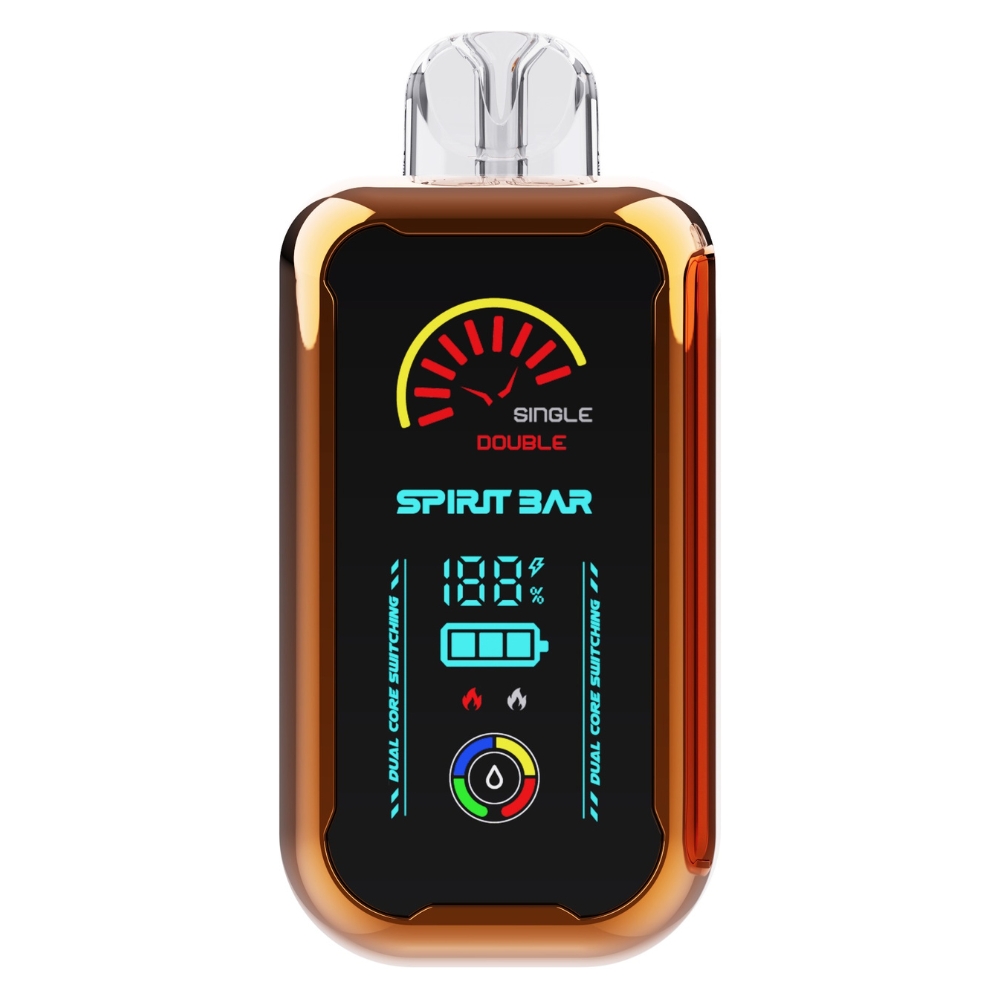What Does Vaping Do to the Lungs? Understanding the Risks and Effects
If you’re a vaper or considering trying it out, you may be wondering what vaping does to your lungs. While vaping is often marketed as a safer alternative to smoking cigarettes, research is still in the early stages when it comes to the long-term effects on lung health. However, it is clear that vaping can have negative impacts on your respiratory system.
According to Johns Hopkins Medicine, using e-cigarettes or vaping can be harmful to your lungs. Vaping devices heat liquid into an aerosol for inhalation into the lungs, and research has shown that over 7,700 e-liquid flavors are available. While it’s still not fully understood how vaping affects the lungs, there are several potential risks associated with the practice, including exposure to nicotine, ultrafine particles, flavorings, volatile organic compounds, cancer-causing chemicals, and heavy metals such as nickel, tin, and lead.
Understanding Vaping
https://www.youtube.com/watch?v=eJ1hKE-p8Qo&embed=true
If you’re new to vaping, it’s important to understand what it is and how it works. Vaping involves inhaling aerosol, or vapor, produced by an electronic cigarette or other vaping device. This aerosol is created by heating a liquid (called e-juice or vape juice) that usually contains nicotine, flavorings, and other chemicals.
When you inhale this aerosol, it goes into your lungs. The chemicals in the aerosol can then be absorbed into your bloodstream and affect other parts of your body. While vaping is often marketed as a safer alternative to smoking, the truth is that it can still harm your health in many ways.
One of the biggest concerns with vaping is its impact on the lungs. While more research is needed to fully understand the long-term effects of vaping on the lungs, we do know that it can cause a range of problems, including inflammation, damage to the airways, and even lung disease.
Some of the chemicals found in e-juice can irritate the lungs and cause inflammation. This can lead to symptoms like coughing, wheezing, and shortness of breath. Over time, this inflammation can cause damage to the airways and make it harder to breathe.
In addition to these immediate effects, there is also concern that vaping could increase the risk of developing lung disease over time. One recent study found that people who vaped were more likely to develop chronic obstructive pulmonary disease (COPD), a serious lung condition that can cause breathing problems and other complications.
Overall, while vaping may seem like a safer alternative to smoking, it’s important to understand that it can still have serious health consequences, especially when it comes to the lungs. If you’re thinking about vaping, it’s important to weigh the risks and benefits carefully and make an informed decision.
Immediate Effects on Lungs
https://www.youtube.com/watch?v=IaVaoja2Uk4&embed=true
When you inhale the vapor from an e-cigarette, it goes straight to your lungs. The chemicals in the vapor can irritate your lungs and cause immediate effects. Here are some of the immediate effects of vaping on your lungs:
-
Inflammation: The chemicals in the vapor can cause inflammation in your lungs. This can make it harder to breathe and cause coughing and wheezing.
-
Bronchoconstriction: The chemicals in the vapor can cause your airways to narrow, making it harder to breathe. This is called bronchoconstriction.
-
Decreased lung function: Vaping can decrease your lung function, making it harder to breathe. This can be especially dangerous for people with asthma or other lung conditions.
-
Increased mucus production: Vaping can cause your lungs to produce more mucus than usual. This can make it harder to breathe and cause coughing.
-
Chemical exposure: Vaping can expose your lungs to harmful chemicals, including nicotine, formaldehyde, and acetaldehyde. These chemicals can cause damage to your lungs and other organs.
It’s important to note that these immediate effects can vary from person to person and depend on the frequency and duration of vaping. If you experience any of these symptoms after vaping, it’s important to talk to your doctor.
Long-Term Effects on Lungs
If you’re a regular vaper, you may be wondering what the long-term effects of vaping on your lungs are. While research on the topic is still in its early stages, there are some potential risks that you should be aware of. In this section, we’ll discuss some of the long-term effects that vaping can have on your lungs.
Chronic Bronchitis
One of the potential long-term effects of vaping on your lungs is chronic bronchitis. Chronic bronchitis is a condition where the lining of your bronchial tubes becomes inflamed, leading to a persistent cough and difficulty breathing. According to a study by researchers at Harvard-affiliated Massachusetts General Hospital, chronic use of e-cigarettes can result in small airway obstruction and asthma-like symptoms.
Lung Disease
Another potential long-term effect of vaping on your lungs is lung disease. While it’s still too early to know the full extent of the risks, some studies have suggested that vaping can lead to lung disease. For example, a study published in The BMJ found that vaping can cause lung inflammation, which can lead to chronic obstructive pulmonary disease (COPD).
Pulmonary Obstruction
Pulmonary obstruction is a condition where your airways become narrowed, making it difficult to breathe. This can lead to shortness of breath, wheezing, and other respiratory symptoms. According to a study by researchers at Johns Hopkins Medicine, using e-cigarettes can lead to pulmonary obstruction, which can increase your risk of developing lung cancer.
In conclusion, while research on the long-term effects of vaping on your lungs is still in its early stages, there are some potential risks that you should be aware of. Chronic bronchitis, lung disease, and pulmonary obstruction are just a few of the potential risks associated with vaping. If you’re a regular vaper, it’s important to be aware of these risks and take steps to protect your lung health.
Vaping vs Traditional Smoking
If you’re considering quitting smoking, you might be wondering if vaping is a better alternative. While vaping is generally considered less harmful than traditional smoking, it’s not completely risk-free. Here are some key differences between vaping and traditional smoking:
Inhalation
When you smoke a traditional cigarette, you inhale smoke into your lungs. This smoke contains a variety of harmful chemicals, including tar and carbon monoxide. Vaping, on the other hand, involves inhaling vapor from an e-cigarette. This vapor typically contains fewer harmful chemicals than cigarette smoke, but it can still contain nicotine and other harmful substances.
Nicotine
Both traditional cigarettes and e-cigarettes can contain nicotine, which is highly addictive. While some e-liquids are nicotine-free, many contain varying levels of nicotine. If you’re trying to quit smoking, it’s important to be aware of the nicotine content in your e-liquid.
Secondhand Smoke
Traditional smoking produces secondhand smoke, which can be harmful to those around you. Vaping, on the other hand, produces secondhand vapor, which is generally considered less harmful than secondhand smoke. However, it’s still important to be considerate of those around you when vaping.
Health Risks
While vaping is generally considered less harmful than traditional smoking, it’s not completely risk-free. Vaping can have negative effects on your lungs and overall health, and long-term effects are still being studied. If you’re considering quitting smoking, it’s important to talk to your doctor about the best options for you.
Factors Influencing Vaping’s Impact
When it comes to the impact of vaping on your lungs, there are various factors that come into play. Here are two factors that can influence the impact of vaping on your lungs.
Frequency of Usage
The frequency of vaping can have a significant impact on your lung health. The more frequently you vape, the more you expose your lungs to the harmful chemicals present in e-cigarettes. Research has shown that frequent vaping can lead to lung inflammation, which can cause breathing difficulties and other respiratory problems.
Type of E-Liquid
The type of e-liquid you use can also impact the health of your lungs. E-liquids contain different types of chemicals, and some of them are more harmful than others. For instance, e-liquids that contain diacetyl can cause a condition called popcorn lung, which is a severe respiratory illness that can cause permanent lung damage.
It’s essential to be aware of the type of e-liquid you’re using and the chemicals it contains. Always read the label and do your research before purchasing e-liquids.
In conclusion, the impact of vaping on your lungs is influenced by several factors, including the frequency of usage and the type of e-liquid you use. To protect your lung health, it’s essential to be mindful of these factors and take appropriate precautions.
Recent Studies and Findings
If you’re wondering about the impact of vaping on your lungs, recent studies and findings suggest that vaping can cause serious respiratory health problems. According to a study by Massachusetts General Hospital, chronic use of e-cigarettes can result in small airway obstruction and asthma-like symptoms.
Another study published by the National Heart, Lung, and Blood Institute found that vaping is linked to increased respiratory symptoms in young adults. The study revealed that vaping doubles the risk of lung problems in teens and is linked to bronchitic symptoms and shortness of breath in young people.
While the long-term effects of vaping are still unknown, research indicates that it is harmful to lung health. The BMJ published a review of the growing body of literature investigating the impacts of vaping on respiratory health. The review highlighted the potential harms of vaping, especially in light of the 2019 E-cigarette or Vaping Use-Associated Lung Injury (EVALI) outbreak.
Although some studies suggest that the harmful effects of vaping are lower than those of conventional cigarettes, it is important to note that vaping still has negative impacts on respiratory health. A study published in Respiratory Research compared the degree of harmful effects documented from e-cigarette and conventional cigarette consumption. The study found that the effects of e-cigarettes were lower than those of conventional cigarettes, but still documented to be harmful to respiratory health.
In summary, recent studies and findings suggest that vaping can cause serious respiratory health problems, including small airway obstruction, asthma-like symptoms, bronchitic symptoms, and shortness of breath. While the long-term effects of vaping are still unknown, it is important to be aware of the risks associated with vaping and to take steps to protect your respiratory health.


